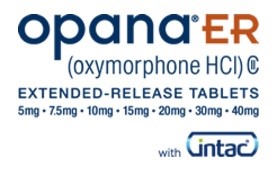FDA Requests Painkiller Opana ER Be Removed From The Market
Medical Malpractice
The FDA requested that Endo Pharmaceuticals, the manufacturer of Opana ER, remove the medication from the marketplace on June 8, 2017. Opana ER is an opioid pain reliever (oxymorphone hydrochloride) and was inteded to provide 24 hour pain relief to patients with moderate to severe pain when other analgesics wear off. Opana ER has been subjected to abuse in the form of injections and snorting and has contributed to infections of HIV, hepatitis C, and serious blood disorders (including thrombotic microangiopathy).
Brief History Of Opana ER
Opana ER received approval in 2006 but was reformulated in 2012 with the intent to make the medication less susceptible to physical or chemical manipulation by abusers who were snorting or injecting the drug. In the face of the “opioid epidemic,” the FDA commisioners felt that these risks of abuse outweighed the medical benefit of the product and were proper cause to take measures to protect the public. Endo Pharmaceuticals has been asked to voluntarily take the product off the market. Failure to voluntary recall Opana ER by the manufacturer could result in FDA withrawing approval to sell Opana ER to the public.
The “Pain” Epidemic Is Real
In 2004, about 35 million people were discharged from hospitals in the United States. Almost half of these patients had received surgery. Approximately 80 percent experienced postoperative pain while 11-20 percent of surgery patients experienced “severe pain” after surgery. Legal prescriptions for pain medication are often the “gateway” to abuse.
Need To Control Pain And Avoid Opioid Addiction
A person who continuously suffers from pain suffers not only the pain itself but also leads to further advsere physical and psychological problems. Pain that is continuous without relief has been shown to activate the pituitary-adrenal axis. This can result in a suppressed immune system leading to infections and a failure to heal.
Sympathetic activation of the pituitary from continuous pain also impacts heart, digestive, and kidney functions. Complications can be serious including deep vein thrombosis and pneumonia. These problems are not only uncomfortable but are also very expensive to treat.
The standard of care involving the treatment of chronic pain patients is to create an individualized pain treatment plan. A chronic pain patient should work out with their doctor a plan that effectively manages pain but does not contribute to abuse. In reaching a plan, the doctor should consider the intensity of the pain, the frequency of pain, to what degree analgesics can be effective, the impact of opioids on a person’s daily living functions and overall quality of life (running, walking, shopping, moods, sleep, etc.).
Help For Those With Opioid Addiction
If you or a family member has become addicted to opioids, the first thing you should do is seek proper medical treatment. Hopefully appropriate treatment can avoid problems that come with addiction such as family issues, job losses, and possibly criminal penalties. After you or your loved one has received treatment and has shaken the addiction, you should research your prescriptions and dosing to see whether your dosing was appropriate for your pain before calling an attorney.
A medical malpractice attorney can help you determine whether you have a case against a doctor for improperly prescribing a medication or whether the medication itself was dangerous and possibly recalled (product liability). It is important to remember that opioid addiction is not likely the fault of the addict as the medication is usually legally prescribed in the beginning.
A doctor may become legally responsible in medical malpractice when a patient’s pain management plan is not appropriate and increases the dosing too fast. The goal of a pain management plan should be to adequately control pain rather than completely eliminate it. This is where the front line in opioid war is being fought.
Your doctor should be performing regular examinations to check for pain and should require such examinations before obtaining multiple refills of pain medication. You should also be following your pain management plan. If you cannot follow the plan because you are experiencing pain too frequently, you should speak to your doctor about what can be done to better manage the pain as well as to minimize the risk of addiction.
Call A Lakeland Medical Malpractice Attorney For Help
If you or a loved one experienced opioid addiction that you believe is the result of medical malpractice, you should contact a Lakeland medical malpractice attorney for a free consultation to discuss your case. In many cases, a patient should be grateful to beat addiction. However, in other cases, a patient may have a legitimate claim that the doctor was irresponsible in prescribing pain medication and may have a legal claim under Florida law. Contact us for a free case review to discuss your case.
Sources
NCBI


